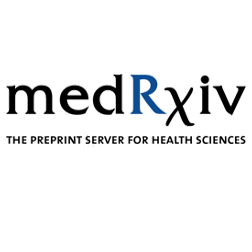
Marishka
@MarishkaMehta
Followers
79
Following
110
Media
0
Statuses
19
Graduate Student at Smith Lab, LIBR
Joined December 2012
Congrats to @MarishkaMehta on her new chapter! She did a great job summarizing the current state of the field and important future steps https://t.co/Kypu3sac3Q "Computational Approaches for Uncovering Interoceptive Mechanisms in Psychiatric Disorders and Their Biological Basis"
link.springer.com
Interoception, the process of detecting, perceiving, and interpreting signals from within the body, is essential for physiological regulation and adaptive behavior. A growing body of research...
0
9
34
I am really happy to share our new preprint - https://t.co/Jaqc2llk6o Grateful to @RyanSmith_LIBR and everyone who contributed to bringing this project to life!
medrxiv.org
Psychiatric disorders are highly heterogeneous and often co-morbid, posing specific challenges for effective treatment. Recently, computational modeling has emerged as a promising approach for...
Excited to congratulate @MarishkaMehta on her new preprint( https://t.co/dku5leAuov) combining modeling, machine learning, and longitudinal data: "Computational Mechanisms of Approach-Avoidance Conflict Predictively Differentiate Between Affective and Substance Use Disorders"
0
1
3
Another group of fantastic spotlight talks from these impressive trainees Yutong Li, @JanetJiani @MarishkaMehta
@RaniGera
#cpconf2024
0
4
13
Ever been curious what the actual empirical evidence is supporting predictive processing models? In this new paper, we provide a thorough review of the empirical status of predictive coding and active inference models at the cognitive and neural level:
3
87
218
Excited to report that this new study (N=480) replicates and extends our previous results. Computational modeling shows greater uncertainty, but less avoidance, during approach-avoidance conflict behavior in affective and substance use disorders.
cdnsciencepub.com
Background: Decision-making under approach–avoidance conflict (AAC; e.g., sacrificing quality of life to avoid feared outcomes) may be affected in multiple psychiatric disorders. Recently, we used a...
1
12
44
Happy to share our new paper examining directed exploration and learning rates in a large sample of individuals w/ substance use disorders ( https://t.co/m8aBHvLy8N). We were quite excited to see that our prior results replicated showing differences in learning rates from losses🧵
medrxiv.org
Background Substance use disorders (SUDs) represent a major public health risk. Yet, our understanding of the mechanisms that maintain these disorders remains incomplete. In a recent computational...
1
4
21
I am excited to share a new paper in @PLOSONE where we look at reward-related self-agency disruptions using a novel task developed by @LSMorris6 . Thank you to all the collaborators, especially to @LSMorris6 for her mentorship and support.
journals.plos.org
Background The sense of agency, or the belief in action causality, is an elusive construct that impacts day-to-day experience and decision-making. Despite its relevance in a range of neuropsychiatric...
1
5
31
Very excited to share this new review, led by the brilliant @LSMorris6, 'On what motivates us: a detailed review of intrinsic v. extrinsic motivation' We focused on intrinsic motivation - what is it? How do we measure it? Why does it matter? Mini 🧵 https://t.co/519ip6WkdD
cambridge.org
On what motivates us: a detailed review of intrinsic v. extrinsic motivation - Volume 52 Issue 10
1
12
46







